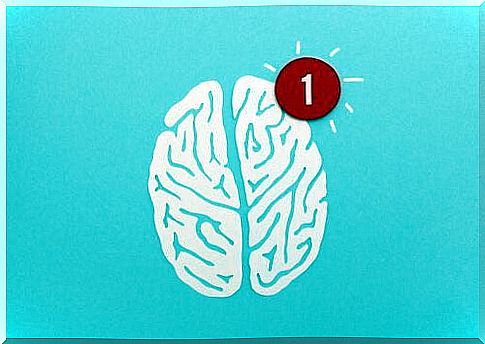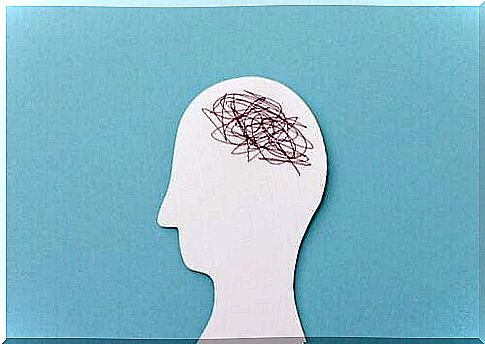5 Reasons Why Your Thoughts Do Not Leave You Alone

President Franklin D. Roosevelt once said, “Man is not a prisoner of his destiny, he is a prisoner of his thoughts.” And of course, this sounds reasonable, especially if you have ever experienced that your thoughts do not leave you alone.
We will take a look at the theories put forward by the Spanish psychologist Maite Finch to explain why this happens. The simple truth is that your brain’s neurochemistry changes when you are stressed or anxious. When needed, the amygdala sends appropriate signals to the brain’s emotional system. But what happens when stress and anxiety are activated without any need?
Sometimes, your interpretation of reality and your way of experiencing it can activate similar neurochemical patterns. It is these thought patterns that often put you in a constant state of stress and anxiety.
Maite Finch believes that there are several reasons why your thoughts do not leave you alone. Below we will take a closer look at these reasons, so you can start with them.

Sometimes we can think that something is fantastic, wonderful and spectacular. Other times, everything seems terrible, gloomy, and extremely negative. That is the basic idea behind black and white thinking. This means that you think in extreme directions, without anything in between, without gray shades.
According to Finch, there are only two thought patterns when using black-and-white thinking. Everything is either very good or very bad. This means that as long as things go as planned, everything is great! But when that does not happen, everything is terrible and you hear a negative voice within you that does not give way.
Emotional thinking
This is another reason why your thoughts do not leave you alone. Emotional thinking means that your decisions are not based on logic or intuition, but on how you feel at the moment.
In other words, unprocessed and uncontrolled emotions play the biggest role in your way of experiencing the world. If you feel uncomfortable, people and things around you will appear in a negative days. And your attitude and behavior usually make your assessment of these people and things confirmed. The dynamic develops a self-fulfilling prophecy, a vicious circle that nourishes itself.
Finch claims that tunnel vision is the result of a thought pattern that is governed by the most difficult experiences you have had in your life. You associate your relationships and everything you experience with a certain, often very difficult time.
This keeps your mind on edge at all times. You are constantly on the lookout for negative people or situations. Your thoughts will be focused on averting any threats. All attention is focused on detecting dangers, discomfort or stressful situations.
In short, your mind is incessantly alert to ominous situations or circumstances. Your vigilance gives you a distorted view of the world, of your thoughts and of attitudes that do not conform to them.

An optimistic attitude can have negative effects if you use it to hide your problems. It can also be inhibiting if it prevents you from acting rationally, or if optimism is just a form of wishful thinking.
False or excessive optimism can make you believe that everything will work out, even if it does not. This may lead you to believe that you do not need a backup plan. It can also make it harder for you to adapt to the circumstances, if not everything goes as planned.
Finally, Finch talks about the problem of personalization. This means a tendency you may have to take personal responsibility for all the harm that is happening in your environment. If you do, you will constantly experience anxiety. Unfortunately, it is impossible to avoid the fact that boring things are constantly happening in the world.
But Finch reminds you that not everything rests on your shoulders. We share the responsibility for what happens to us. And if you always make yourself a martyr for the mistakes of others, you will be dragged with a lot of anxiety in the future.









